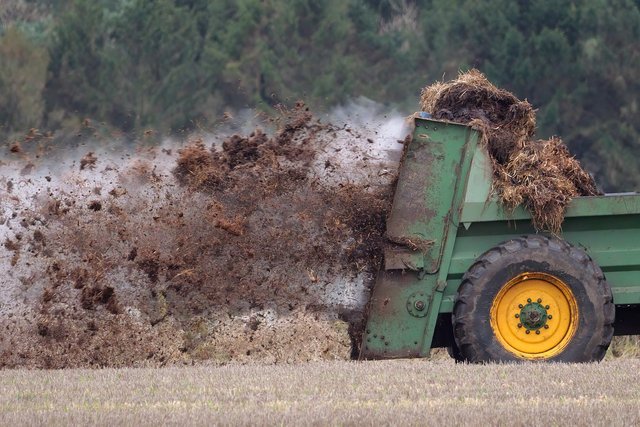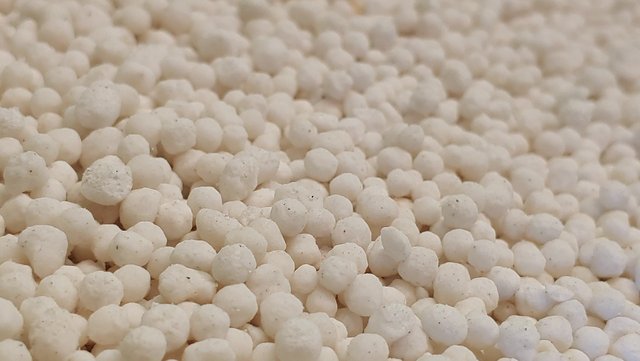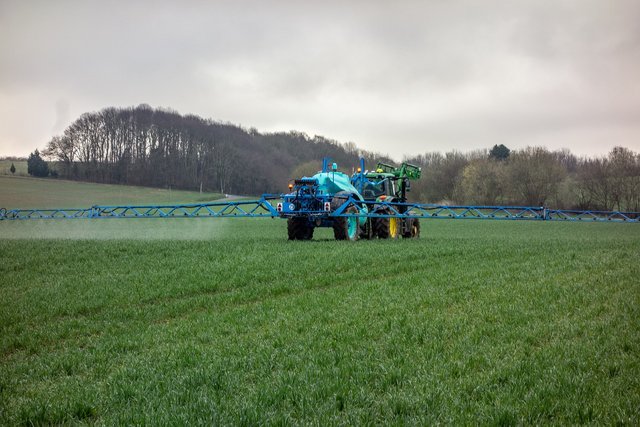Organic fertilizers vs chemical fertilizers.
You all know your steemain @chiagoziee for #Nigeria, a pleasure being here to share my ideas on this contest. Fertilizer application is one of the farming activities that today's farmers make use of to improve production.
| Which one do you use between chemical fertilizer and organic fertilizer? |
|---|
I will likely say that I prefer organic fertilizers over chemical fertilizers. Organic fertilizer can be defined as the natural components or materials that help improve soil health and provide more nourishment for the plant's growth. Chemical fertilizers can be defined as inorganic compounds that are made to increase the growth and developmental structure of plants by providing the required nutrients needed by plants, e.g., phosphorus, nitrogen, oxygen, and potassium. I will say that anything natural is better than something artificial.
We all know that organic fertilizers are the natural elements for plants, animals, and mineral-based compounds that are contracted with minimal human assistance. The example of organic fertilizers are sewage sludge, compost, and waste products from animals.
Organic fertilizer works by the act of using bacteria to break the soil down organic fertilizer into soluble nutrients that plants can use. The natural elements that organic material contains help boost the health and lifespan of the crops and the natural properties that are present in the soil. Let me proceed by calling the benefits of organic fertilizer: organic fertilizer aids soil efficiency, helps prevent soil degradation, and prevents erosion.
| Assess the status of your country's use of chemical fertilizers. |
|---|
My country #Nigeria has an agricultural culture of making chemical fertilizers. And with my analysis, I can vividly say that my country engages in the use of chemical fertilizers in 79% and 21% of organic fertilizers. During the year, I was opportune to follow my friend to their family cocoa farm, and I saw him make use of chemical fertilizers; not only that but in our yaw farm this year, we applied chemical fertilizers, which we don't usually make use of.
Around my area, chemical fertilizer application is mostly used, and based on the research I conducted on the use of fertilizer around my country, I discovered that it was highly used because the production process became easier and faster.
| Explain the advantages and disadvantages of organic fertilizers and chemical fertilizers. |
|---|
Organic fertilizers and chemical fertilizers are very important in the growth of crops in agriculture. Here are the importance of organic fertilizer.
Organic fertilizer helps in regulating toil health keeping it in a proper condition and improving soil structure. It also helps to increase the natural elements present In soil.
We all know that natural elements in the soil can not be too much for the plants; organic fertilizer helps in preventing over-fertilization.
Organic fertilizers are mainly nontoxic, ecological, and environmentally friendly; they don't contain compounds that are harmful to the environment. This is also one of the factors that makes them more suitable for application on the farm than chemicals.
Organic fertilizer can make plants grow and mature at a sustainable and slow rate, which will bring out the true qualities of crops.
Organic fertilizers are pure in nature and don't leave any artificial compounds in the soil; with this quality, you can see that the soil can always stay balanced.
Chemical fertilizers
Chemical fertilizers have a lot of advantages to farming and here they are
Chemical fertilizers are created in a way that the depth of plants' roots; this then increases the soil properties and makes it easier for plants to access underground water.
Chemical fertilizers have a potable amount of nutrients, like nitrogen, phosphorus, and potassium, which are highly required for the production of crops.
Chemical fertilizers are made to adapt to the way plants grow and help plants develop to their full potential, which leads to the production of crops in large quantities and qualities.
Another thing about chemical fertilizers is that the cost makes them more affordable for farmers than organic fertilizers because they are produced in large quantities and have longer shelf life.
Chemical fertilizers are made to be absorbed fast by plants, which makes it easier for them to work, with results being seen within days instead of weeks.
| Currently, there is a lot of use of chemical fertilizers. How can we reduce this and use organic fertilizers? |
|---|
To reduce the use of organic fertilizer, we are expected to cultivate cover crops, which are also known as noncommercial crops, between these crops to build soil carbon and help increase soil fertility and structure. In this way, the constant use of chemical fertilizers will be reduced. We can also rotate different crops on one land in another to provide nutrients for plants.
We can also reduce the use of organic fertilizers, which are mainly cow dung, and biological nutrients, which have the natural elements to replace chemical fertilizers. Using manure and urine can also reduce the use of chemical fertilizers.
I wil like to invite @josepha, @bonaventure24, @john247, @ahmneska, @ninapenda, @xkool24, and @pandora2010 and @aspiya to be part of this contest.
✓Thanks for reading my post



X share
https://x.com/emmazilla447/status/1871129400005255207?s=19
Through your point one can be educated about it (Organic fertilizers vs chemical fertilizers), and the high use of chemical fertilizer will reduce.
What a lovely 🌹 entry ❤️ best luck.